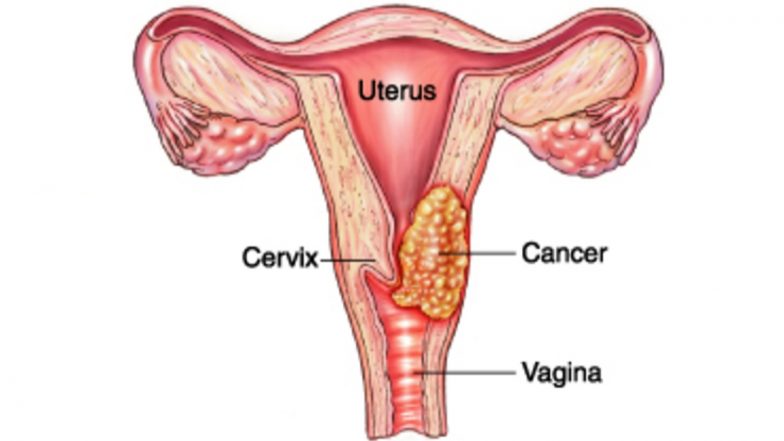New Delhi, Jan 29 (IANSlife) Misconceptions often arise around prevalent conditions. Believing in myths about the causes of cancer can result in unnecessary concerns about your health. January is recognized as Cervical Cancer Awareness Month, dedicated to increasing awareness about the disease, its modes of transmission and the importance of early diagnosis. Poonam Pandey No More: Model-cum-Actress Succumbs to Cervical Cancer, Dies at 32.
Cervical cancer is one of the formidable health challenges that affects women globally. When it comes to cervical cancer, there are a lot of myths and misunderstandings about the condition. This, in turn, affects the steps that people can take to minimize the risk as well as how cervical cancer can be treated.
So, what is cervical cancer?
It is a cancer that begins in the cervix of a woman’s body. The cervix is the organ which connects the vagina to the lower part of a woman’s uterus. In a majority of cases, cervical cancer begins in the cells located on the surface of the cervix. Cervical Cancer Vaccination for Girls: Govt To Encourage HPV Vax, Says FM Nirmala Sitharaman Presenting Interim Budget 2024.
What are some common myths about cervical cancer?
Although cervical cancer is highly treatable and even curable, especially in the initial stages, there is a need to increase awareness about the cancer. One of the ways to do that is by tackling the common myths that exist around this disease. Ahead are some common cervical cancer myths that many people tend to believe.
Myth 1: Pap tests need to be done yearly
Fact: If your Pap and HPV tests are routine, they need not be done yearly. Cervical screening guidelines for women who have tested negative previously include the following:
Ages 21-29: Pap test to be done every three years
Ages 30-64: Pap test and HPV test to be done every five years
Ages 65 and older: Consult a specialist or doctor on whether you need to continue Pap and HPV tests, as this can vary from person to person
Even though Pap and HPV tests may not be mandatory, preventive health checks with a doctor should be done regularly to flag any potential disease early.
Myth 2: HPV only affects people with multiple sex partners
Fact: This is not true, as HPV is ubiquitous and can affect any person. Many people are unknowingly affected by HPV at some point in their lifetime but do not get any associated disease because their immune systems can fight it effectively.
Myth 3: Screening is only necessary for people who have a family history of cervical cancer
Fact: A majority of cervical cancer cases are caused by certain types of HPV, which generally spreads by skin contact during sex with someone who has the virus. Although this virus is widespread, only a few of those people who come in contact with the virus will develop cancer. In other words, a family history of cervical cancer only has a small role to play. The best way to prevent this form of cancer is by going for regular screenings and taking the appropriate vaccine.
Myth 4: Cervical cancer cannot be prevented.
Fact: Cervical cancer is one of the most preventable forms of cancer, especially with regular screening tests and a vaccine that protects against types of HPV that cause most cervical cancers.
In conclusion, preventive health check-ups, screenings and vaccinations all play a vital role in preventing cervical cancer. Awareness about this condition can go a long way in helping to reduce the cases and, at the same time, ensure timely diagnosis and prognosis for women affected by cervical cancer.
(The above story first appeared on LatestLY on Feb 02, 2024 01:23 PM IST. For more news and updates on politics, world, sports, entertainment and lifestyle, log on to our website latestly.com).







